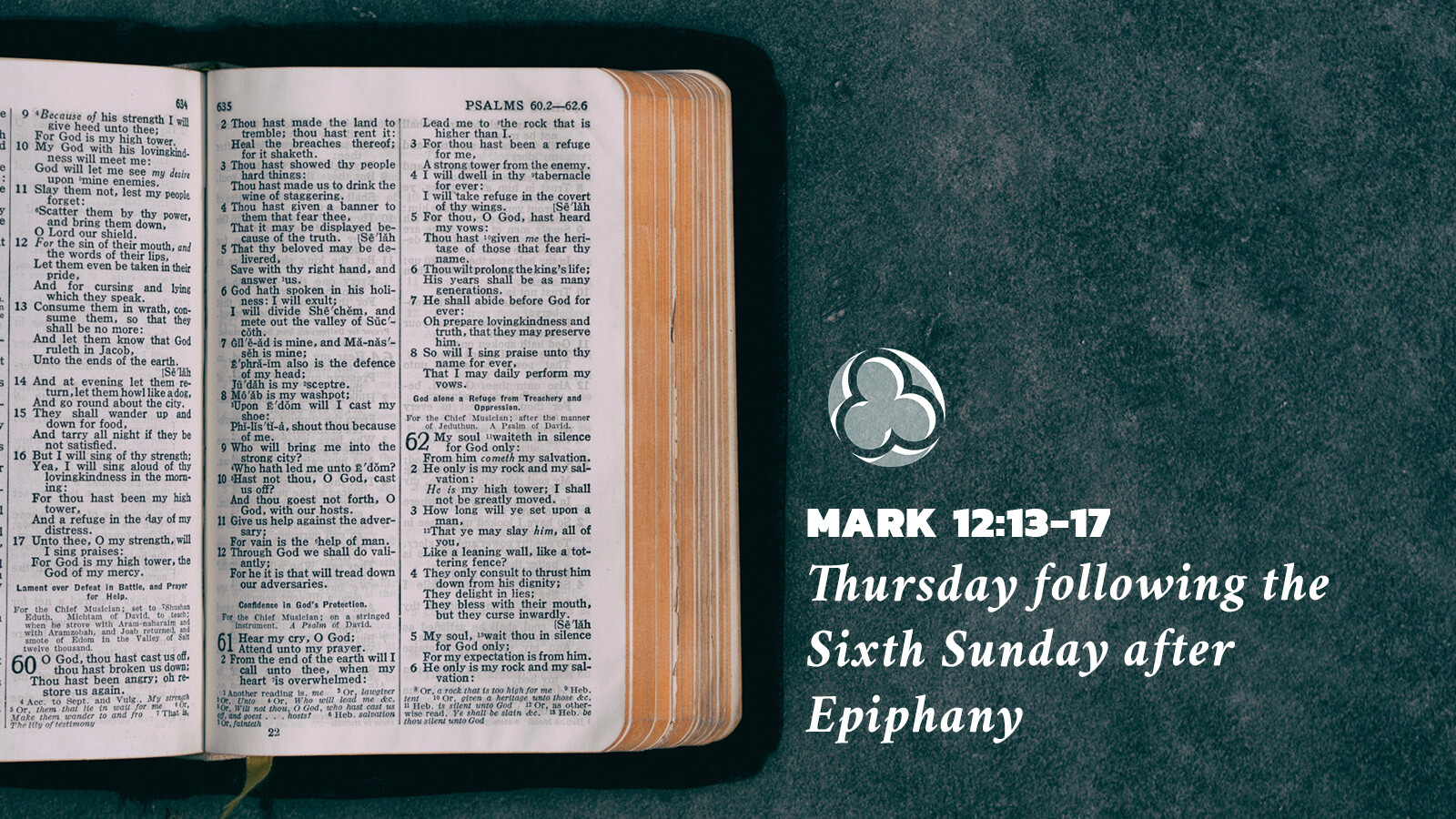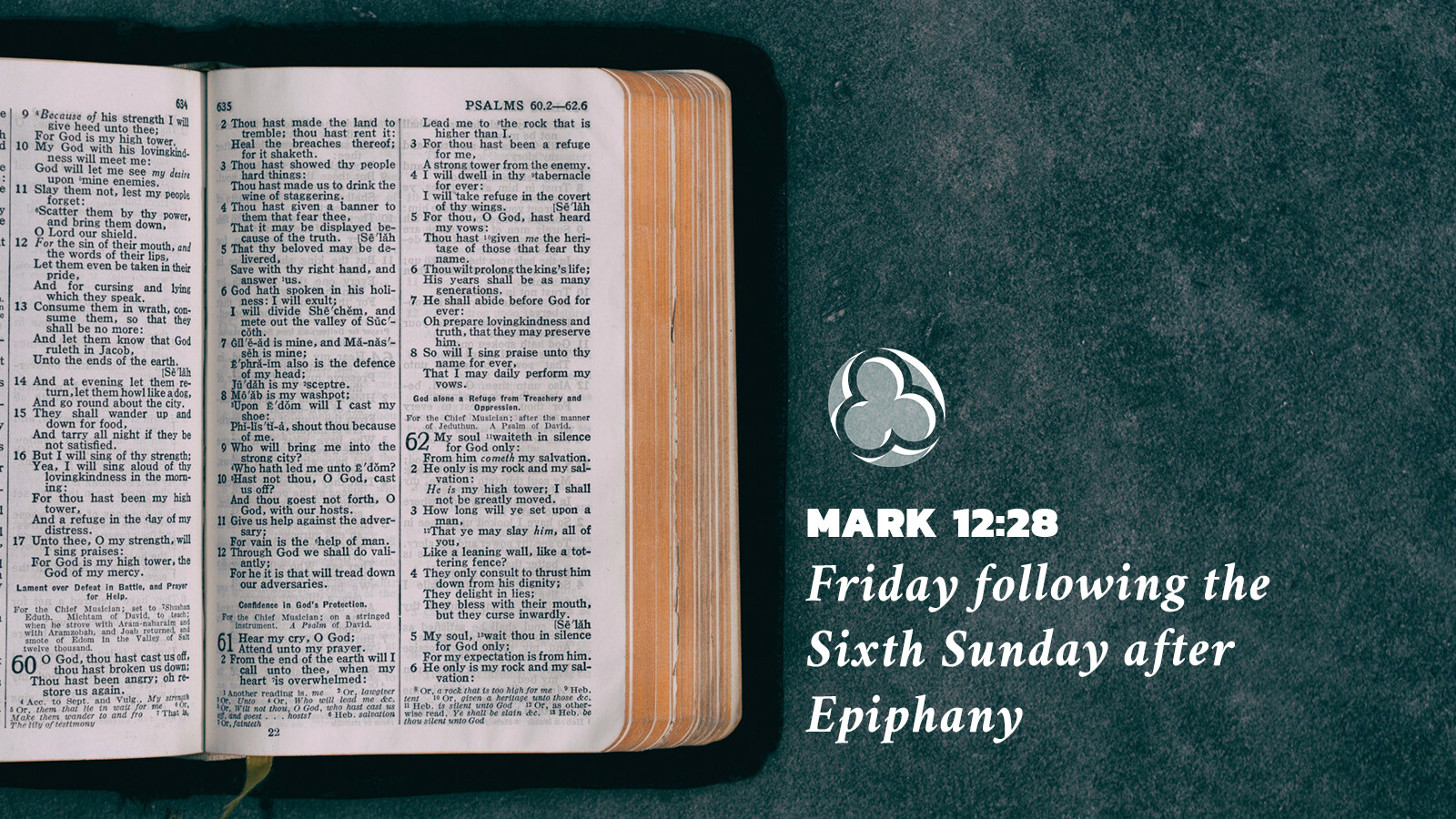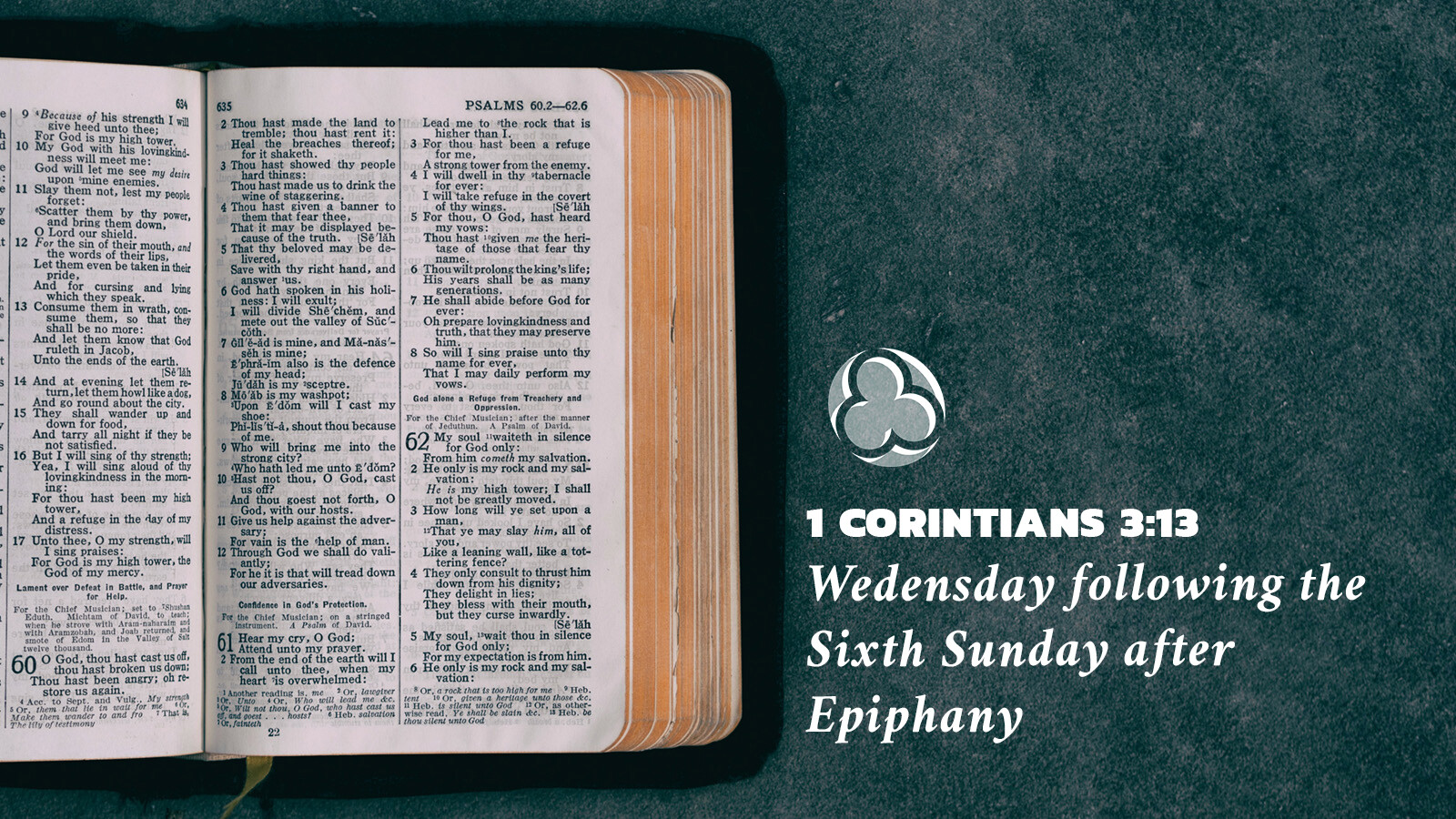
Then they sent to him some Pharisees and some Herodians to trap him in what he said. And they came and said to him, “Teacher, we know that you are sincere, and show deference to no one; for you do not regard people with partiality, but teach the way of God in accordance with truth, is it lawful to pay taxes to the Emperor or not? Should we pay them or not?” But knowing their hypocrisy he said to them, “Why are you putting me to the test? Bring me a denarius and let me see it.” And they brought him one. Then he said to them, ‘Whose image is this and whose title? They answered: The Emperor’s… Then, Jesus said, give to the Emperor the things that are the Emperor’s, and to God the things that are God’s. And they were utterly amazed at him.
-Mark 12:13-17
Render unto Caesar that which is Caesar's. The Herodians and the Pharisees were Jews hostile to Jesus. They would have loved nothing more than to turn him over to the Romans as a traitor. Trying to pin him down and expose, they posed the question of taxes. By asking them to produce a Roman coin he exposed them as servants of the system. Andy Thayer taught us that in the days of Christ, Caesar owned everything. If you were a fisherman, you fished for Caesar’s fish and were allowed to keep some for your efforts. You gave the rest to the tax man. If you were a farmer, a sheep herder or a winemaker, the same applied. So, the coin with Caesar’s image on it belonged to Caesar. In Genesis we are told that we are created in the image of God, so our spirit and our souls are in God’s care. Material things are managed by Caesar but our soul and spirit belong to God alone.
Marsden Moran noted that slavery of the old South was similar to Roman Rule. The Negro slave possessed nothing, not his wife nor his children, nor his home or the lands he worked. All could be sold by “Master” on a whim. What couldn’t be owned by the “Master “was his soul. Religion was very important in the enslaved person’s life, and the music of his religion was of utmost importance. Negro Spirituals sustained the enslaved as they worked under a brutal sun in “The Masta’s” field or garden. These Spirituals were frequently composed upon bible passages that describe a longing for salvation and freedom. They served as psychological supports that helped enslaved men and women keep a measure of their dignity and individuality under subhuman conditions.
Five favorite Spiritual hymns include:
- Go Down Moses exhorts the Master (Pharaoh) to “Let My People Go”
- Follow The Drinking Gourd alludes to the Big Dipper, a constellation of stars which leads to the North Star and Freedom
- Michael, Row the Boat Ashore,The Jordan river is deep and wide with honey on the other side.
- Swing Low Sweet Chariot In this hymn the Jordan River may allude to the Ohio River with a band of angels (conductors of the underground railroad) ready to conduct me to the other side (Freedom).
- My favorite is Over in The Glory Land. I quoted this hymn in my eulogy to my dear sister during her service in the Trinity Chapel. “Just over in the Glory Land, she’ll join that happy angel band, over in the Glory Land.”
Over in the Gloryland - Preservation Hall Jazz Band
Merciful God, we are sometimes enslaved by the rigors of everyday life. We are overwhelmed by taxes on our property and income at this time of year. We forget that we are Your children, created in Your own image. Give us the comfort and strength to continue on, in our time on earth. Help us to remember to return ourselves - body and soul - to You. Amen.





Login To Leave Comment